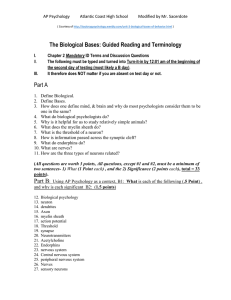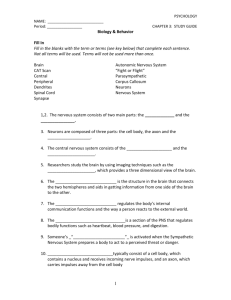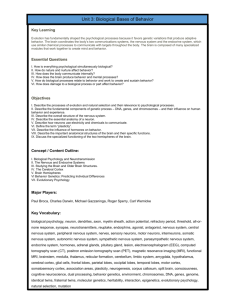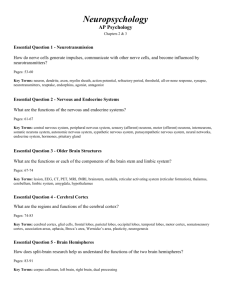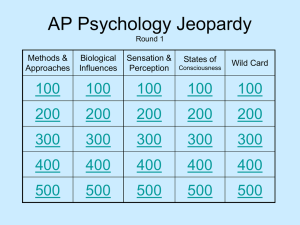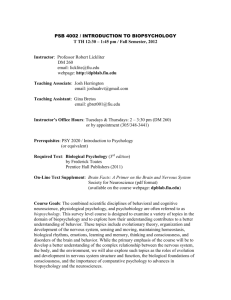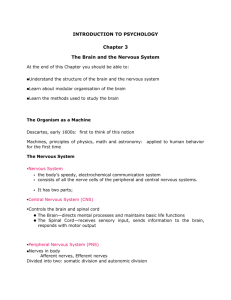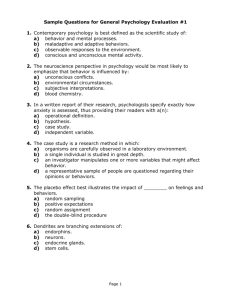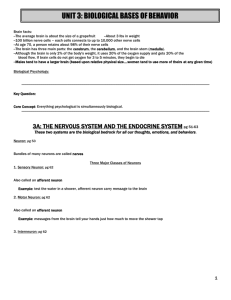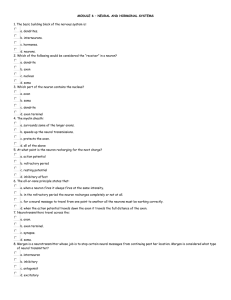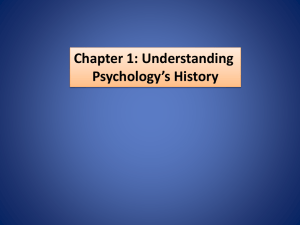File ap psychology midterm vocabulary 2015 just the words
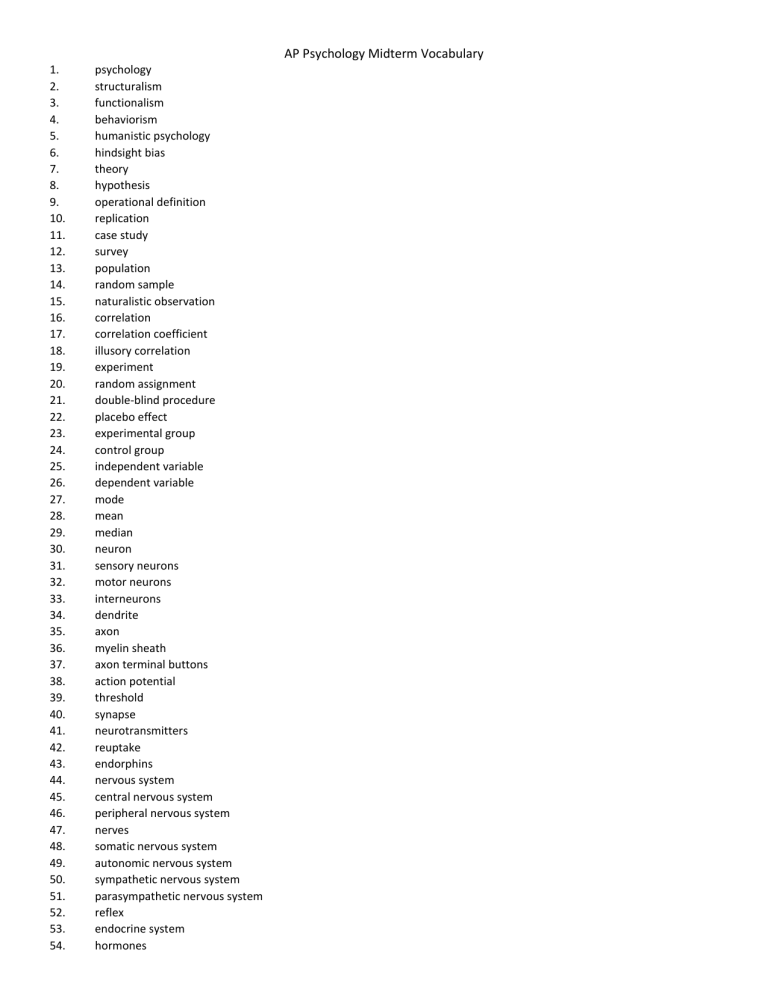
27.
28.
29.
30.
31.
32.
33.
34.
22.
23.
24.
25.
26.
35.
36.
37.
38.
39.
40.
41.
42.
43.
44.
45.
46.
47.
48.
49.
50.
51.
52.
53.
54.
9.
10.
11.
12.
13.
14.
15.
16.
17.
18.
19.
20.
21.
5.
6.
7.
8.
1.
2.
3.
4.
psychology structuralism functionalism behaviorism humanistic psychology hindsight bias theory hypothesis operational definition replication case study survey population random sample naturalistic observation correlation correlation coefficient illusory correlation experiment random assignment double-blind procedure placebo effect experimental group control group independent variable dependent variable mode mean median neuron sensory neurons motor neurons interneurons dendrite axon myelin sheath axon terminal buttons action potential threshold synapse neurotransmitters reuptake endorphins nervous system central nervous system peripheral nervous system nerves somatic nervous system autonomic nervous system sympathetic nervous system parasympathetic nervous system reflex endocrine system hormones
AP Psychology Midterm Vocabulary
63.
64.
65.
66.
67.
68.
69.
70.
71.
72.
73.
74.
75.
76.
77.
78.
79.
80.
55.
56.
57.
58.
59.
60.
61.
62.
81.
82.
90.
83.
84.
85.
86.
87.
88.
89.
91.
92.
adrenal glands pituitary gland electroencephalogram (EEG)
PET scan
MRI
FMRI
Medulla oblongata reticular formation thalamus cerebellum limbic system amygdala hypothalamus frontal lobes parietal lobes occipital lobes temporal lobes motor cortex sensory cortex association areas plasticity corpus callosum split brain
Developmental Psychology
Conception
Prenatal Development:
Zygote Stage
Embryo Stage (Weeks 2-8)
Fetus Stage (Weeks 9 and up)
Teratogens
Fetal Alcohol Syndrome
Newborn Reflexes
Grasping reflex
Rooting
Moro (startle) reflex
Babinski
Tonic Neck
Stepping
Habituation
Maturation
Infant Memory
Schemas
Assimilation
Accommodation
Sensorimotor Stage
Object Permenance
Preoperational Stage
Centration
Irreversibility
Deloache
Egocentrism
Theory of Mind
Concrete Operational Stage
Formal Operational Stage
AP Psychology Midterm Vocabulary
93.
94.
95.
96.
AP Psychology Midterm Vocabulary
Social Development Theory of Learning
More Knowledgeable Others
Zone of proximal
Scaffolding
97.
Psychosexual Stages
libido
Oral Stage
Anal Stage
Phallic Stage
Latency Stage
98.
Genital Stage
Fixation
Defense Mechanisms
Repression
Regression
Denial
Reaction Formation
Projection
Rationalization
Displacement
99.
Sublimation
Social Development
100.
8 Stages of Psychosocial Development.
Trust v. Mistrust
Autonomy V. Shame & Doubt
Initiative V. Guilt
Industry v. Inferiority
Identity v. Role Confusion
identity crisis.
Intimacy v. Isolation
Generativity v. Stagnation (Middle Adulthood)
Integrity v. Despair (late Adulthood)
101.
Attachment
102.
Body Contact
103.
Familiarity
104.
Strange Situation Experiment
105.
Secure vs Insecure
Inconsistently no
Consistently no
106.
reactive attachment disorder
107.
Temperament Studies
108.
Separation Anxiety
109.
Deprivation of Attachment
110.
Day Care and Attachment
111.
Parenting Styles
112.
Adolescence
113.
Physical Development
Primary Sexual Characteristics
Secondary Sexual Characteristics
Brain Development
114.
Frontal Cortex
115.
Cognitive Development
8.
9.
10.
11.
12.
13.
14.
15.
16.
4.
5.
6.
7.
1.
2.
3.
116.
Moral Development
117.
3 stages of Moral Thinking
Pre Conventional
Conventional
Post Conventional
118.
imprinting
119.
basic trust
120.
self-concept
121.
adolescence
122.
puberty
123.
primary sex characteristics
124.
secondary sex characteristics
125.
menarche
126.
menopause
127.
cross-sectional study
128.
longitudinal study
129.
crystallized intelligence
130.
fluid intelligence
Those People
Wilhelm Wundt
Sigmund Freud
Carl Rogers
William James
John Watson
Jean Piaget
Renee’ Baillergeon
Karen Wynn
Judy Deloach
Erik Erickson
Lev Vygotsky
Harry Harlow
Mary Ainsworth
Lawrence Kohlberg
Carol Gilligan
Konrad Lorenz
AP Psychology Midterm Vocabulary
